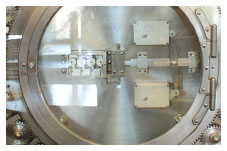 Account Security Account Security
At Applied Bank, we are very concerned about the security of your account data and personal information. Here are some ways to help you keep your personal information safe.
Internet Safety Tips
User ID and Password
- Make sure to create a strong password. It’s a good idea to create a password that contains a combination of letters and numbers. Avoid using information that would be easy to guess, such as family or pet names, birthdays or anniversaries. Never reveal your passwords to anyone and be sure to change them periodically. Memorize all passwords and never store them in your wallet.
Sign Out Completely
- Once you have completed viewing a Website, make sure to sign out. If you do not sign out, you could allow others using the same computer to have access to your personal information. Sign out and close the browser’s window as a precaution.
Avoid Phishing
- Phishing is a scam that uses email messages or pop-up messages to deceive you into disclosing your credit card numbers, financial institution account information, social security number, passwords, and other sensitive information. These messages will claim to be from a company that you may or may not do business with. They usually say that you need to update or validate your account information. It will direct you to a Website that may look very similar to the legitimate Website. Reputable companies will never ask you for this kind of information through email.
Staying Secure
- Make sure to only do business on the Internet with legitimate companies. Not every Website is reputable. Research a company before providing personal or financial information.
- When providing personal information on a Website, make sure that the Web address starts with an “https” (the “s” means that it is a secure page) or make sure that an icon, such as a lock or key is displayed in the lower corner of your browser's window to let you know that your browser's encryption is active. This ensures that your personal information cannot be read by a hacker.
Secure Computer
- Install virus protection software on your computer and make sure to keep it up to date. Some emails and pop up messages contain software that can harm your computer or track your activities on the Internet.
- Install a firewall on your home computer. A firewall will help make you “invisible” on the Internet. It will block information from unauthorized sources and can prevent hackers from obtaining personal information from your hard drive. However, you should always be cautious when opening attachments or downloading files from emails you receive.
- Be sure to keep your operating system up to date. Operating systems (such as Microsoft® Windows or Macintosh®) often release updates to repair security flaws that are discovered after the software was originally released. If your operating system is not up to date, you may be putting your personal information at risk.
Prevent Identity Theft
- Identity theft is one of the fastest growing crimes in the United States today. It occurs when a criminal uses another person's personal information to commit fraud. Here are some tips to help you protect yourself against Identity Theft.
Protect personal information
- Never carry important personal documents such as Social Security cards, birth certificates, or passports unless you need to use them. Don’t have your social security number or driver’s license number preprinted on your checks. Make sure to place outgoing mail directly into Post Office boxes. Mail deposited in your own mailbox could be intercepted by criminals. If you go on vacation, make sure to call the post office and have your mail held there.
Review financial statements regularly
- Carefully review all bank and credit card statements every month. This is usually the first place that unauthorized activity will appear. Contact your financial institution immediately if you see any unusual activity. Call your credit card company or bank if you don’t receive a statement on time every month. It could mean that someone called the company using your information and changed the billing address. Make sure to get a copy of your Credit Bureau Report every year.
- Properly dispose of financial documents. Many people go “dumpster diving” looking for credit card applications or documents containing Social Security numbers. This will make sure that no one can gain private information from your trash.
PicturePass SM and PicturePhrase SM
- The PicturePass and PicturePhrase will be displayed to you each time you sign in at Applied Bank. When you see the valid image and phrase, you can be assured you have accessed the correct website. If you do not recognize your PicturePass or PicturePhrase, please call Technical Support at 800-947-1090 from 9:00 a.m. to 6:00 p.m. Eastern Time, Monday through Friday.
If you suspect Identity Theft
Report Fraud Immediately
- As soon as you suspect that you may be a victim of identity theft, contact your financial institution and credit card companies. You may be able to catch the offender and minimize the damage to your personal funds and financial accounts.
Obtain Proof
- File a Police Report and be sure to get a copy. Retain the police report and any correspondence with your financial institution or other creditors that can be used as evidence.
Prevent Additional Fraud
- Contact the major consumer reporting agencies and ask that they place a fraud alert on your credit file. A fraud alert will let potential creditors know that some form of fraud has been associated with your credit report and helps prevent future occurrences.
Contact information for the consumer reporting agencies
we report to is listed below:
TransUnion LLC
TransUnion
2 Baldwin Place
P.O. Box 1000
Chester, PA 19022
1-800-888-4213
www.transunion.com
Experian National Consumer Assistance Center
Experian
P.O. Box 2104
Allen, TX 75013
1-888-397-3742
www.experian.com
|
|
|
|
|